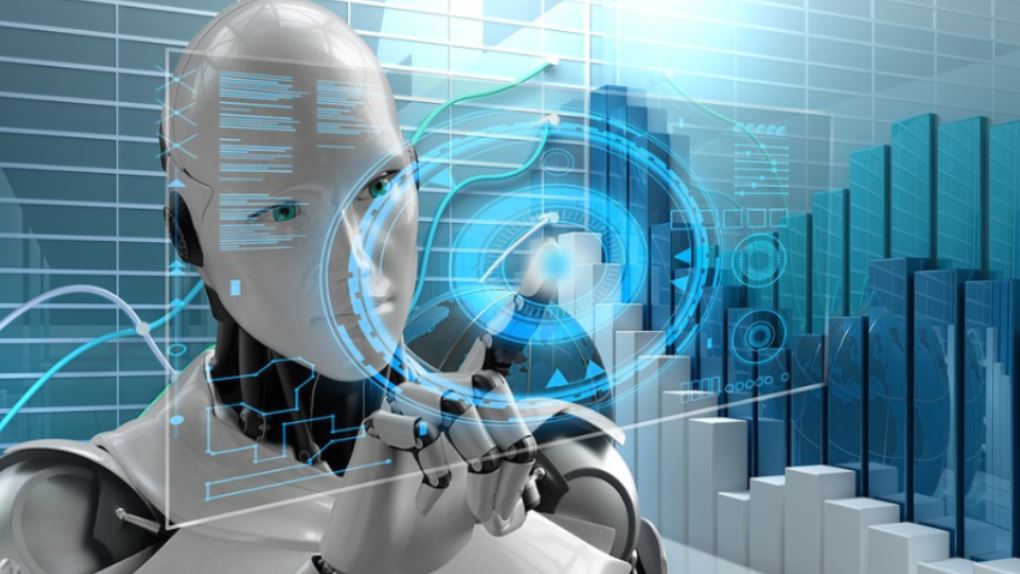
OR
#OPINION
Making the Best Use of AI to Serve Humanity
June 18, 2024 09:05 AM

AI does not have the same kind of consciousness as humans.
Artificial intelligence (AI) is a machine’s ability to perform the cognitive functions we usually associate with human minds, such as perceiving, reasoning, learning, interacting with an environment, problem-solving, and even exercising creativity. Despite much debate and speculation these days about AI surpassing human intelligence soon and enslaving humans, we are unknowingly falling within its horizon and performing many tasks. Many of us use AI-powered real-time language translation, health and fitness apps to track and analyze health-related activities, automated answering and reminders with virtual assistant tools, smart home devices for security, image and speech recognition tools to search, open and interact with devices, and more. AI is being used today across different industries, from finance to healthcare.
The development of AI and its impact on our daily lives is immense. The year 2022 brought AI into the mainstream through widespread familiarity with applications of Generative Pre-Training Transformer. The most popular application is OpenAI's ChatGPT, which rapidly gained popularity, with millions of users being added each month in 2023. The Gemini chatbot, a generative artificial intelligence chatbot developed by Google in 2023, has also gained tremendous popularity in a short span of time. The widespread fascination with ChatGPT and Gemini made them synonymous with AI in the minds of most consumers. However, they represent only a small portion of the ways AI technology is being used today. Recently, Apple partnered with OpenAI to roll out a new artificial intelligence system, which is expected to be a leapfrog in the AI platform.
Applications of Artificial Intelligence
AI does not have the same kind of consciousness as humans. However, the applications for artificial intelligence are considered endless. The technology can be applied to many different sectors and industries. AI is being tested and used in the healthcare industry for suggesting drug dosages, identifying treatments, and aiding in surgical procedures in the operating room. AI is also used to classify patients, maintain and track medical records, and handle health insurance claims. Future innovations are thought to include AI-assisted robotic surgery, virtual nurses or doctors, and collaborative clinical judgment. Likewise, artificial intelligence also has applications in the financial industry, where AI algorithms can analyze large volumes of financial data to identify patterns and anomalies that can indicate fraudulent activity and enable risk assessment models by analyzing large datasets to minimize potential risks in real-time.
AI can make life more convenient and enjoyable every day, improving our standard of living. It can navigate you out of terrible traffic, turn your cooling devices on before you reach home in hot weather, scroll through hundreds of possible TV shows to find genres you like, and detect fake news and disinformation by mining social media information. Artificial Intelligence is also becoming a part of agriculture and farmers’ lives. It is used to detect various parameters such as the amount of water and moisture, and the amount of deficient nutrients in the soil. There are also machines that use AI to detect where weeds are growing, where the soil is infertile, etc.
AI can offer accessibility for people with disabilities in a far better way. Artificial intelligence is commonly integrated into smartphones and other household devices. Virtual assistants, including Siri, Alexa, and Cortana, can perform innumerable tasks, from making a phone call to navigating the internet. Those who are deaf or hearing impaired can access transcripts of voicemails or other audios. AI can improve workplace safety as it doesn’t get stressed, tired, or sick, three major causes of human accidents in the workplace. AI robots can collaborate with or replace humans for especially dangerous tasks.
On the other hand, AI poses harm to the standard of living for many people by causing mass unemployment as robots replace people. AI robots and other software and hardware are becoming less expensive and need none of the benefits and services required by human workers, such as sick days, lunch hours, health insurance, pay raises, promotions, performance reviews, and retirement, which spells trouble for workers and society at large. Another big disadvantage of AI is that it cannot learn to think outside the box, resulting in no creativity. It is widely believed that AI will grow uncontrollably and eventually wipe out humanity.
Likewise, Artificial intelligence poses dangerous privacy risks; facial recognition technology can be used for passive, warrantless surveillance without the knowledge of the person being watched. Moreover, AI can be a godsend to crooks. For example, in 2020, a group of 17 criminals defrauded $35 million from a bank in the United Arab Emirates using AI “deep voice” technology to impersonate an employee authorized to make money transfers.
No country will be untouched by AI, and no country alone will solve the challenges posed by this technology. AI has the potential to revolutionize the way we live, but risks also must be minimized. Amid the mass concern about risks and opportunities, global leaders and AI developers met in the United Kingdom during 1-2 November 2023 at the world's first global summit on AI safety to assess the risks and opportunities. They have agreed to work with governments to test new frontier models before they are released to help manage the risks of the rapidly developing technology. Hopefully, the use of AI will be regulated to the best interest of humans by minimizing the greater risks foreseen in the near future.
Hash Tag:
You May Like This

Hackers promise AI, install malware instead
SAN FRANCISCO, May 4: Meta on Wednesday warned that hackers are using the promise of generative artificial intelligence like ChatGPT... Read More...

Infographics: Women headcount in AI and Coding jobs is dismal
The world of Artificial Intelligence and Coding belongs to men if World Economic Forum’s Global Gender report 2018 is to... Read More...

Use of force resulting in death of Sunny Khuna deeply disturbing: AI
KATHMANDU, Aug 25: Amnesty International (AI) Nepal, an international human rights watchdog, has urged the Nepal government to exercise maximum... Read More...

Just In
- Govt under scrutiny for delaying probe into alleged extortion scandal by DRI chief
- Canada projected to have up to 87 million inhabitants by 2073
- Nepal’s information landscape is somewhat vibrant: VIBE Study Report
- Over 3 million annual deaths linked to alcohol and drug use, majority among men: WHO report
- Ncell strengthens disaster preparedness focusing on monsoon, forms Rapid Response Teams
- Nepal’s literacy rate reaches 77.4 percent
- NEPSE loses 11.60 points; daily turnover falls to Rs 4.05 billion
- Motihari-Amlekhganj Petroleum Pipeline Project: Preparations to bring petrol thru pipeline in three months


















Leave A Comment